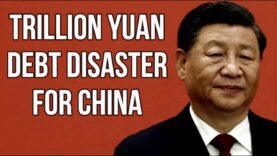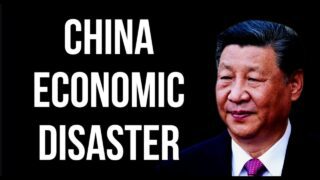CHINA Nationalizing Real Estate as Property Collapse Deepens, Prices Crash & LGV’s to Buy Apartments
Video Summary
The Chinese property market has been in a deep slump for years, triggered by a debt crisis among developers. To address the issue, the Chinese authorities have introduced various stimulus measures, including the “white list” program, which allows eligible developers to access debt financing and complete uncompleted projects. In addition, they have reduced mortgage rates, lowered deposits for homebuyers, and allowed local authorities to buy apartments and convert them into affordable housing for Chinese nationals.
However, despite these measures, the property market is still in dire straits. Prices are now falling at their fastest rate in over a year, and sales volumes are declining, leading to significant losses for developers. The market is also dominated by excess supply, with many apartments that were sold years ago still not built, and buyers paying mortgages on properties that don’t yet exist.
The Chinese authorities’ latest move is to nationalize these apartments, allowing local authorities to buy large chunks of property from developers, which would clear excess supply and provide a guarantee for developers to complete uncompleted projects. However, the success of this approach depends on the valuation of the properties, which needs to be at a break-even level for developers to avoid further losses.
The property market’s woes are also having a significant impact on the Chinese economy, which is heavily reliant on property as a sector that makes up around 25% of GDP. With the property market expected to continue to decline, the Chinese economy is likely to face significant challenges in 2024, including a potential 5% growth target that may be difficult to achieve.
























